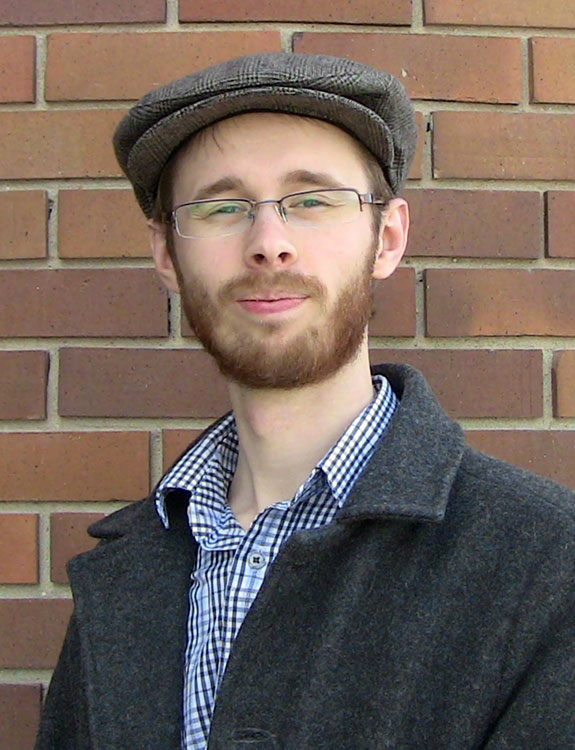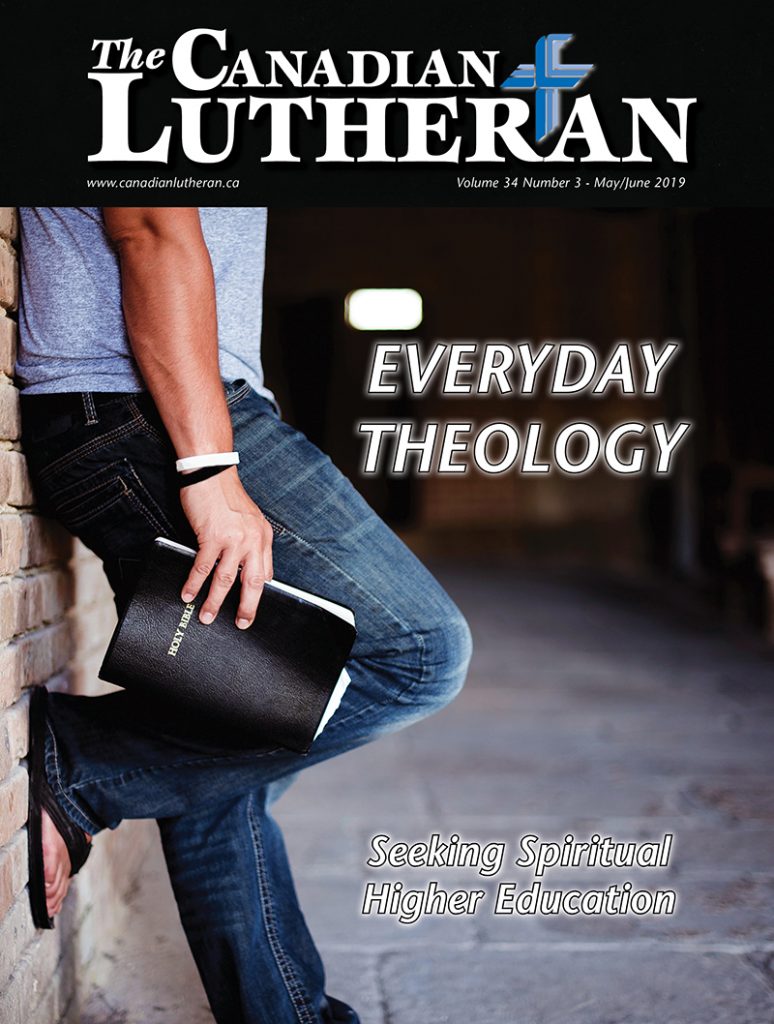Higher Education and You
 by Mathew Block
by Mathew Block
When you think of “higher education” in a Christian context, you probably think of seminary. That’s especially true around this time of the year. Just recently Lutheran Church-Canada (LCC) celebrated the graduation and first calls of a new class of pastors, as well as the vicarage placements of two seminary students.
It’s natural to think of Christian higher education primarily in relation to those pursuing church work. In reality, though, all Christians are called to pursue “higher education”—to “set our minds on things above,” if we might borrow the words of St. Paul (Colossians 3:2). Faith is not merely a matter of head knowledge, of course, but head knowledge nevertheless plays a part. God calls every Christian to engage more deeply with their faith by learning to understand it better.
The heart of that education comes through the reading of Scripture. It is in Scripture alone that we hear God speak with perfect clarity and authority. So it is that St Paul writes: “All Scripture is breathed out by God and profitable for teaching, for reproof, for correction, and for training in righteousness, that the man of God may be complete, equipped for every good work” (2 Timothy 3:16). The Bible, as God’s Word, is the school for every Christian. As we seek to know Christ better, we must therefore seek greater understanding of His Word.
As we seek to know Christ better, we must therefore seek greater understanding of His Word.
In Psalm 119, we see a thirst for God’s Word that we should all emulate. At its heart, this extended prayer—the longest chapter in the Bible—is a request that God would teach us His Word. “Teach me Your statutes,” the author prays again and again. “Give me understanding.” It’s a prayer we should make our own.
Why? “The unfolding of Your Words gives light,” the Psalmist writes. “It imparts understanding to the simple” (119:130). Whoever would be wise must seek God in His Word.
The study of Scripture is not meant to be undertaken alone, however. We are certainly called to personal study of the Bible, but we are also called to read God’s Word in the fellowship of the wider Church. We believe in the authority of “sola Scriptura,” after all, not solo Scripture-reading. God never intended for us to go it alone.
To that end, God has given you a treasure in the person of your local pastor. This man has been trained and called to teach God’s Word to you—to open up your mind to the wonder of Holy Writ. He may not always be very eloquent. He might stumble over his words sometimes while preaching. But God has given him a precious task: to proclaim Christ to you out of the Scriptures, to proclaim both the Law which condemns sin and the Gospel of forgiveness through the cross. Your pastor is called to proclaim the Word of God to you—and that Word, as St. Paul reminds us, is given ultimately to “make you wise for salvation through faith in Christ Jesus” (2 Timothy 3:15).
As we grow in understanding through regular study of Scripture, we are encouraged to share what we have learned with others. “Let the Word of Christ dwell in you richly,” St. Paul encourages, “teaching and admonishing one another in all wisdom” (Colossians 3:16).
That means not only sharing what you know; it also means humbly learning from others—your fellow congregants, of course, but not only them. It also includes those who have preceded you in the faith. The Church down through the ages has given us many works which can help us to better understand our faith. We think, for example, of the Creeds. In the same way, Martin Luther’s Catechisms remain vital tools for us today as we pursue Christian “higher education”.
 We also benefit from the insight of contemporary sources. As one example, LCC’s seminaries provide a number of lay-friendly theology courses which you can watch online for free (page 34). Closer to hand, you can work on your theological formation with articles in The Canadian Lutheran. In this issue, for example, Susan Knowles (who has just completed a Master of Theological Studies degree) does us a great service in unpacking the relevance of theological study to everyday life. And Adam Chandler (a student finishing off his vicarage assignment) gives us an example of one aspect of theology we would all do well to study more: apologetics.
We also benefit from the insight of contemporary sources. As one example, LCC’s seminaries provide a number of lay-friendly theology courses which you can watch online for free (page 34). Closer to hand, you can work on your theological formation with articles in The Canadian Lutheran. In this issue, for example, Susan Knowles (who has just completed a Master of Theological Studies degree) does us a great service in unpacking the relevance of theological study to everyday life. And Adam Chandler (a student finishing off his vicarage assignment) gives us an example of one aspect of theology we would all do well to study more: apologetics.
You may wish to pursue theological education in a formal setting, by studying for a MTS degree, for example, or for a career in the diaconate, or as a pastor. You’ll gain a better understanding of these options in this issue of the magazine: on the MTS through the aforementioned article by Knowles; on the diaconate through the words of Dcn. Dr. Jennifer Frim ; and on the pastoral ministry through LCC President Timothy Teuscher’s column. You can also find important resources on the websites of LCC’s two seminaries and at www.IsGodCallingMe.ca.
Whether you go to seminary or not, you are called to pursue Christian “higher education.”
But whether you go to seminary or not, you are called to pursue Christian “higher education.” Start by reading your Bible regularly. In time, the words of the Psalmist may become your own: “Oh, how I love your Law! It is my meditation all the day” (Psalm 119: 97).
———————
Mathew Block is editor of The Canadian Lutheran magazine and communications manager for the International Lutheran Council.



